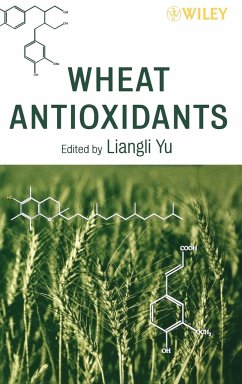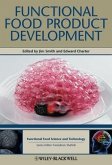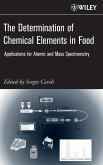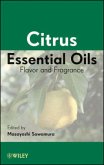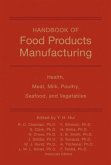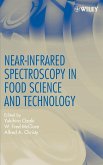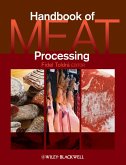Maximizing the health benefits of wheat-based foods
Growing evidence indicates that eating whole wheat foods may produce health benefits, including a reduced risk of coronary heart disease and certain types of cancer. Wheat Antioxidants is a comprehensive reference that consolidates current information on the antioxidant properties of wheat, their beneficial effects, the mechanisms involved, factors affecting availability/bioavailability, and the methods used to measure them. With chapters contributed by leading experts, this definitive resource:
_
Discusses antioxidant properties of wheat grains and fractions and their phytochemical composition
_
Covers the effects of genotype, growing conditions, post-harvest treatment, storage, and food formulation and processing on availability/bioavailability
_
Discusses the analytical methods for investigating the antioxidant properties of wheat grain and fractions and their phytochemical composition, including spectrophotometric and fluorometric methods and electron spin resonance (ESR) spectroscopy
_
Covers the effects of wheat antioxidants on genes involved in cholesterol metabolism and the potential effect of wheat antioxidants on normal intestinal cells and nutrient absorption
Multidisciplinary approaches are required to capitalize on the potential of wheat antioxidants and maximize the benefits of wheat-based foods rich in natural antioxidants. Wheat Antioxidants provides the background for further research and makes the latest information accessible to cereal chemists, food technologists, food processors, nutritionists, industry consultants, and others interested in functional foods, nutraceuticals, and wheat.
Hinweis: Dieser Artikel kann nur an eine deutsche Lieferadresse ausgeliefert werden.
Growing evidence indicates that eating whole wheat foods may produce health benefits, including a reduced risk of coronary heart disease and certain types of cancer. Wheat Antioxidants is a comprehensive reference that consolidates current information on the antioxidant properties of wheat, their beneficial effects, the mechanisms involved, factors affecting availability/bioavailability, and the methods used to measure them. With chapters contributed by leading experts, this definitive resource:
_
Discusses antioxidant properties of wheat grains and fractions and their phytochemical composition
_
Covers the effects of genotype, growing conditions, post-harvest treatment, storage, and food formulation and processing on availability/bioavailability
_
Discusses the analytical methods for investigating the antioxidant properties of wheat grain and fractions and their phytochemical composition, including spectrophotometric and fluorometric methods and electron spin resonance (ESR) spectroscopy
_
Covers the effects of wheat antioxidants on genes involved in cholesterol metabolism and the potential effect of wheat antioxidants on normal intestinal cells and nutrient absorption
Multidisciplinary approaches are required to capitalize on the potential of wheat antioxidants and maximize the benefits of wheat-based foods rich in natural antioxidants. Wheat Antioxidants provides the background for further research and makes the latest information accessible to cereal chemists, food technologists, food processors, nutritionists, industry consultants, and others interested in functional foods, nutraceuticals, and wheat.
Hinweis: Dieser Artikel kann nur an eine deutsche Lieferadresse ausgeliefert werden.

